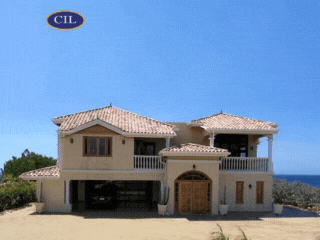Caribbean, Mexico fighting sargassum with heavy-duty machines
Two companies, one U.S.-based and the other French, recently found themselves in the front lines in the battle to rid beaches of sargassum, the stinky, brown, ugly masses of floating seaweed that are carpeting the shorelines of popular destinations in the Caribbean and Mexico’s Yucatan Peninsula.
Sargassum shows up every year, but this summer’s onslaught is the largest on record, leading Brian Lapointe, a professor and oceanographer with Florida Atlantic University’s Harbor Branch Oceanographic Institute, to declare it “the worst year ever. I’d say we’ve hit a crisis level.”
That makes it a good year for Connecticut-based H. Barber & Sons, which has manufactured beach-cleaning equipment since 1966, and CDO Innov, a French company that manufactures industrial equipment used for environmental issues.
Sargassum presents several challenges as well as a rotten-eggs odor. On many beaches, the stuff washes up with every tide. Workers can rake it and remove it in the morning, only to have it return on the next tide, pushed along by ocean currents and winds.
It also poses a major disposal problem.
Chris Kelly, director of sales and marketing for H. Barber & Sons, outlined some scenarios for getting rid of the muck, but he admitted that “none are perfect.”
“Disposal depends on where the beach is located,” Kelly said. “In Galveston, where they had catastrophic amounts of sargassum in 2014, they’d stockpile it on a remote part of the beach far from sunbathers and swimmers, let it dry out and decompose and then use it to build up the dunes. The problem with that is that it attracts flies and insects, and it stinks. Some places use it for fertilizer or mulch, but many times it ends up going to a landfill.”
He was on site in Guadeloupe two weeks ago, training workers to use his company’s patented Surf Rake machine, first manufactured in 1966 and redesigned in 2010.
“This machine picks up 95% of the sargassum and other algae on a beach,” he said. “It does not pick up the surrounding wet sand, so the beach is not being eroded. It’s not a complicated machine to operate, but it does require initial training.”
H. Barber & Sons’ rakes have been the go-to solution for several big resorts in the Yucatan, whose beaches have been plagued by sargassum this year.
“There are 50 Surf Rakes in operation in the Yucatan,” Kelly said. “Some of the bigger resorts buy them outright. Others are bought by contractors that the resorts and municipalities hire to clean up the beaches. Each machine is $65,000, so it’s a big investment.”
Among the resorts in Cancun and the Riviera Maya that have the Surf Rake in their seaweed-cleanup arsenal are the Moon Palace Golf & Spa Resort, Mayan Palace Riviera Maya, Grand Palladium Riviera Resort & Spa, Grand Riviera Princess, Viva Wyndham Maya and three resorts in the Mayakoba complex: Banyan Tree Hotel & Resort, Fairmont Mayakoba and Rosewood Mayakoba.
Some of the smaller Caribbean islands, like Guadeloupe and Martinique, depend upon contractors who own the machines to clean the beaches.
“Tourists expect clean beaches, so it’s not a problem that can be ignored,” Kelly said.
He estimated that there are more than 1,000 Surf Rake machines in operation around the world.
His chief competitor is CDO Innov, a company headquartered in Machecoul, a small town in western France. One of its solutions is an amphibious vehicle called AMP, which can execute many tasks, including collecting mounds of seaweed on the beach, at the waterfront and in the sea.
The vehicle has a suction nozzle connected to a high-capacity pumping system.
To develop AMP, CDO Innov partnered with another French company, Thomsea, a leader in marine spill equipment and the inventor of the engine-driven seaweed action pump.
“The solution is very effective and can collect 25 tons of seaweed per hour,” said Guillaume Amiand, marketing communications officer, who added that the AMP system is designed to collect sargassum without destroying native flora and fauna.
CEO Cyril Thabard said, “The testing we have done guarantees that any living creature sucked up with our system [i.e. shrimp, eels or fish] emerges alive and well. Our machines also do not damage the turtles’ nests on the beaches.”
Once the sargassum is collected, it goes to recycling centers; it can be used to make plastic bags, clothing, paper and fertilizer.
“We live in the west of France in Brittany,” Thabard said. “And we’ve been recycling green seaweed for quite a while, so we are at the cutting edge of technology due to the involvement of many science labs in the area.”
Like H. Barber & Sons, CDO Innov has been marketing its solutions to several resorts and destinations in the Caribbean. Its machines start at $50,000 each, and the company said that training is imperative to guarantee the machine’s best performance.
CDO Innov executives said they are currently in talks with resorts in the Dominican Republic, the Bahamas, Jamaica and Belize about purchases of the AMP, which is already in use in Guyana and Brazil.
Not every resort or destination is looking to heavy equipment to fix the problem. Dreams Riviera Cancun Resort & Spa recently staged its own cleanup initiative involving teams of employees who competed to collect and remove the most seaweed from the resort’s beach, with cash prizes going to the top three teams. The resort reported that over the past three weeks, more than 23 tons of the weeds and resulting muck were collected and removed.











.png)

.png)



.png)






















3 Responses to “Caribbean, Mexico fighting sargassum with heavy-duty machines”
Check it here : http://www.sargasse.world/